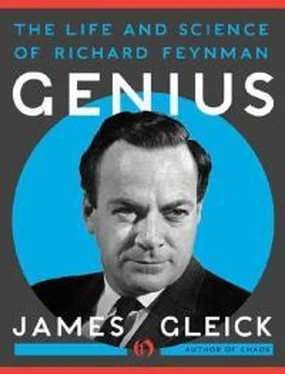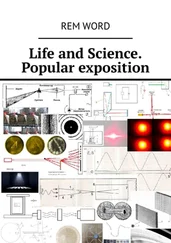when the family regularly read aloud. He had a surprising giggle, and his son acquired an eerily exact facsimile.
Comedy, for Lucil e, was a high cal ing and a way of defying misfortune: the hard reality of her grandparents’ lives in a Polish ghetto, and tragedy in her own family. Her mother suffered from epilepsy and her eldest sister from schizophrenia. Except for another sister, Pearl, her brothers and sisters died young.
Early death also came to her new household. In the winter Richard was five, she gave birth to a second son, named Henry Phil ips Feynman, after her father, who had died a year before. Four weeks later the baby came down with a fever. A fingernail had been bleeding and never quite healed. Within days the baby was dead, probably from spinal meningitis. The grief, the quick turning of happiness into despair—and surely for Richard the fear as wel —
darkened their home for a long time. He had waited for a brother. Now he had a lesson in human precariousness, in the cruelty of nature’s untamed accidents. Later he almost never spoke of the harsh death that dominated this year.
He had no brother or sister again until final y, when he was nine, Joan was born. Henry’s presence remained a shadow in the household. Richard knew—even Joan knew—that their mother always kept a birth certificate and a hat that had once belonged to a boy whose remains now lay in the vault of the family mausoleum five miles away, behind a stone plate inscribed, “HENRY PHILLIPS FEYNMAN JANUARY
24, 1924–FEBRUARY 25, 1924.”
The Feynmans moved several times, leaving Manhattan
for the smal towns straddling the city border: first to Far Rockaway; then from Far Rockaway to Baldwin, Long Island; then to Cedarhurst, when Richard was about ten, and then back to Far Rockaway. Lucil e’s father owned a house there, and they moved in—a two-story house of stucco the color of sand, on a smal lot at 14 New Broadway. There were front and rear yards and a double driveway. They shared the house with Lucil e’s sister Pearl and her family—her husband, Ralph Lewine, a boy, Robert, just older than Richard, and a girl, Frances, just younger. A rail of white wood ringed the porch. The ground floor held two living rooms, one for show and one for general use, with gas logs in a fireplace for cold days. The bedrooms were smal , but there were eight of them. Richard’s, on the second floor, overlooked the back yard, with its forsythia and peach tree. Some evenings the adults would come home to find his cousin, Frances, shivering at the upstairs landing, unable to sleep because Richard, as chief baby-sitter, had told ghost stories drawing their mood from the old Gothic panels that lined the stairs.
The household had two other members during those pre-Depression years, a German immigrant couple, Ludwig and Marie, easing their passage into the United States by working as household servants for room and board. Marie cooked; Ludwig said wryly that he was gardener, chauffeur, and butler, serving meals in a formal white coat. They also arranged some serious and inventive play. With Ludwig’s help the north window of the garage became the North Fenster Bank. Everyone took turns playing tel er and
customer. As Ludwig and Marie learned English they taught the children other routines: the protocols of gardening and formal table manners. If Feynman acquired such skil s, he careful y shed them later.
To Joan, the youngest of al the children, it seemed like a wel -run household where things happened when they were supposed to happen. Late one night, however, when she was three or four, her brother shook her awake in violation of the routine. He said he had permission to show her something rare and wonderful. They walked, holding hands, onto Far Rockaway’s smal golf course, away from the il uminated streets. “Look up,” Richard said. There, far above them, the streaky wine-green curtains of the aurora borealis rippled against the sky. One of nature’s surprises.
Somewhere in the upper atmosphere solar particles, focused by the earth’s magnetosphere, ripped open trails of luminous high-voltage ionization. It was a sight that the street lights of a growing city would soon cast out forever.
It’s Worth It
The mathematics and the tinkering developed separately.
At home the scientific inventory expanded to include chemicals from chemistry sets, lenses from a telescope, and photographic developing equipment. Ritty wired his laboratory into the electrical circuits of the entire house, so that he could plug his earphones in anywhere and make impromptu broadcasts through a portable loudspeaker. His
father
declared—something
he
had
heard—that
electrochemistry was an important new field, and Ritty tried in vain to figure out what electrochemistry was: he made piles of dry chemicals and set live wires in them. A jury-rigged motor rocked his baby sister’s crib. When his parents came home late one night, they opened the door to a sudden clang-clang-clang and Ritty’s shout: “It works!”
They now had a burglar alarm. If his mother’s bridge partners asked how she could tolerate the noise, or the chemical smoke, or the not-so-invisible ink on the good linen hand towels, she said calmly that it was worth it. There were no second thoughts in the middle-class Jewish families of New York about the value of ambition on the children’s behalf.
The Feynmans raised their children according to a silent creed shared with many of their neighbors. Only rarely did they express its tenets, but they lived by them. They were sending their children into a world of hardships and dangers. A parent does al he or she can to bring a child up
“so that he can better face the world and meet the intense competition of others for existence,” as Melvil e once put it.
The child wil have to find a niche in which he can live a useful and fruitful life. The parents’ motives are selfish—for nothing can magnify parents in the eyes of their neighbors as much as the child’s success. “When a child does something good and unusual,” Melvil e wrote, “it is the parents chest that swel s up and who looks around and says to his neighbors (without actual y speaking, of course)
‘See what I have wrought? Isn’t he wonderful? What have
you got that can equal what I can show?’ And the neighbors help the ego of the parent along by acclaiming the wonders of the child and by admiring the parent for his success …”
A life in the business world, “the commercial world,” is arid and exhausting; turn rather to the professions, the world of learning and culture. Ultimately, for the sacrifices of his parents a child owes no debt—or rather the debt is paid to his own children in turn.
The adult Richard Feynman became an adept tel er of stories about himself, and through these stories came a picture of his father as a man transmitting a set of lessons about science. The lessons were both naïve and wise.
Melvil e Feynman placed a high value on curiosity and a low value on outward appearances. He wanted Richard to mistrust jargon and uniforms; as a salesman, he said, he saw the uniforms empty. The pope himself was just a man in a uniform. When Melvil e took his son on walks, he would turn over stones and tel him about the ants and the worms or the stars and the waves. He favored process over facts.
His desire to explain such things often outstripped his knowledge of them; much later Feynman recognized that his father must have invented sometimes. The gift of these lessons, as Feynman expressed it in his two favorite stories about his father, was a way of thinking about scientific knowledge.
One was the story about birds. Fathers and sons often walked together on summer weekends in the Catskil Mountains of New York, and one day a boy said to Richard,
Читать дальше












